In Tarragona, 259 AD
It was on the Lord’s day, 16 January, in the year that Aernilianus and Bassus were consuls [AD 259], that Bishop Fructuosus and his deacons Augurius and Eulogius were arrested. Bishop Fructuosus had retired to his chamber when a group of orderlies made their way to his house: they were Aurelius, Festucius, Aelius Pollentius, Donatus, and Maximus. When the bishop heard their step, he immediately got up and went out to meet them in his slippers.
‘Come along,’ the soldiers said to him, ‘The governor summons you with your deacons.’
Fructuosus said to them: ‘Let us go; or, if you will allow me, I shall put my sandals on.’
The soldiers said to him: ‘Put on your sandals as you like’
As soon as they arrived they were put in prison.Fructuosus, however, was calm and glad that he would receive the Lord’s crown to which he had been called. He prayed constantly, and there were Christians with him, comforting him and begging him to remember them.
The next day in prison he baptized our brotherRogatianus. After spending six days in jail, they were brought out for a hearing on Friday, 21 January.
The governor Aemilianus said: ‘Bring in the bishopFructuosus, Augurius, and Eulogius.’ A court official said, ‘They are present.’
The governor Aemilianus said to Fructuosus: ‘Were you aware of the emperor’s orders?’
Fructuosus said: ‘I do not know their orders. I am a Christian.’
The governor Aemilianus said: ‘They have ordered you to worship the gods.’
Fructuosus said: ‘I worship the one God Who has made heaven and earth and all that is in them’ [Acts 4:4].
The governor Aemilianus said: ‘Do you know that the gods exist?’
‘No, I do not,’ said Fructuosus.
Aemilianus said: ‘You will know later.’Fructuosus looked up to the Lord and began to pray within himself. T
Then Aemilianus said: ‘These are obeyed, these are feared, and these are adored; if the gods are not worshipped, then the images of the emperors are not adored.’
The governor Aemilianus said to Augurius: ‘Do not listen to the words of Fructuosus.’
Augurius said: ‘I worship God almighty.’
The governor Aemilianus said to Eulogius: ‘Do you not also worship Fructuosus?’
‘No,’ said Eulogius, ‘I do not worship Fructuosus, but I worship the One Whom he worships.’
Aemilianus the governor said Fructuosus: ‘You are a bishop?’
‘Yes, I am,’ said Fructuosus.
‘You were,’ said Aemilianus. And he sentenced them to be burnt alive.
As Bishop Fructuosus was being taken to the amphitheatre with hisdeacons, the people began to sympathize with him, for he was much beloved of pagans and Christians alike. For he was all that the Holy Spirit, through Paul, the vessel of election [Acts 9:15] and the teacher of the Gentiles [2 Tim. 1:11], declared that a bishop should be. For this reason his brothers, who knew that he was going on to such great glory, were happy rather than sad.
Many out of brotherly affection offered him a cup of drugged wine to drink, but he said: ‘It is not yet the time for breaking the fast.’ For it was still in the fourth hour, and in jail they duly observed the stational fast on Wednesdays. And so on Friday he was hastening joyfully and confidently to break his fast with the martyrs and prophets in heaven, which the Lord has prepared for those who love Him [1 Cor. 2:9].
When he arrived at the amphitheatre, he was approached by one of his readers namedAugustalis, who begged him with tears that he might remove his shoes for him.
The blessed martyr replied: ‘No, let it go, my son. I shall remove my own sandals in courage and joy, certain of the Lord’s promises.’
Then, after he had removed his sandals, a fellow soldier and Christian came up named Felix, who grasped his right hand and begged him to remember him. The holy bishop Fructuosus answered him in a loud voice so that all could hear: ‘I must bear in mind the entire catholic Church spread abroad in the world from East to West.”
Fructuosus the bishop was now at the portal of the amphitheatre, and the time was drawing near for him to attain not the final penalty but rather the unfading crown. Even though the staff officers whose names have been mentioned above were standing by, spoke so that they as well as all the brethren could hear, with the inspiration and the words of the Holy Spirit: ‘You will not long be lacking a shepherd, nor can the love and promises of the Lord fail you either here or in the hereafter. For what you look upon now seems but the weakness of a single hour.’
Thus then did he console the brethren; they then entered on the way of salvation, worthy in their martyrdom and happy to reap the fruit of the Holy Scriptures according to the promises. They were like Ananias, Azarias, and Misael [the companions of Daniel who were cast into a blazing furnace by Nebuchadnezzar but escaped unscathed: Dan. 1:6-7; 3:13-26], so that the divine Trinity was visible also in them. For to each at his post in the flames the Father was present, the Son gave his aid, and the Holy Spirit walked in the midst of the fire. When the bands that tied their hands were burnt through, recalling the Lord’s prayer and their usual custom, they knelt down in joy assured of the resurrection, and stretching out their arms in memory of the Lord’s cross, they prayed to the Lord until together they gave up their souls.
After this the usual miracles of the Lord were not lacking.Babylas and Mygdonius, two of our brethren in the household of the governorAemilianus, saw the heavens open, and this they also revealed to Aemilianus’ daughter, their mistress according to the flesh: there was the saintly bishopFructuosus together with his deacons rising crowned up to heaven, with the stakes to which they had been bound still intact.
They summoned Aemilianus and said: ‘Come and see how those whom you have condemned to death today have been restored to heaven and to their hopes.’ But when Aemilianus came, he was not worthy to behold them.
But the Christians were sad, as those who are abandoned without a shepherd and burdened with sorrow, and this not because they felt sorrow for Fructuosus, but rather because they missed him and recalled the memory of the faith and the contest of each of the martyrs. When night fell, they hastened to the amphitheatre with wine in order to quench the smoldering bodies. This done, each one collected the ashes of the martyrs, so far as he could, and claimed them for his own. And here too the miracles of our Lord and Savior were not lacking to increase the faith of believers and to set an example to the young. For it was necessary that the martyr Fructuosus should finally confirm in his own bodily suffering and resurrection that which he had by God’s mercy in our Lord and Savior, when he was alive and teaching in the world. And so, after his death, he appeared to his brethren and urged them that what each had taken of his ashes out of love for him should be restored without delay.
Fructuosus also appeared Aemilianus, who had condemned him to death, together with his deacons in robes of glory. And he scolded and mocked him, saying that it was of no use for him to believe vainly that, stripped of their bodies, they would remain in the earth, now that he could see them in glory.
Ah, blessed martyrs, who were tested in the fire like precious gold, clad in the breastplate of faith and the helmet of salvation, crowned with a diadem and a crown that does not fade because they trod underfoot the Devil’s head! Ah, blessed martyrs, who earned a worthy dwelling-place in heaven, standing at the right hand of Christ, blessing God the Almighty Father, Jesus Christ his son, and the Holy Spirit! Amen.


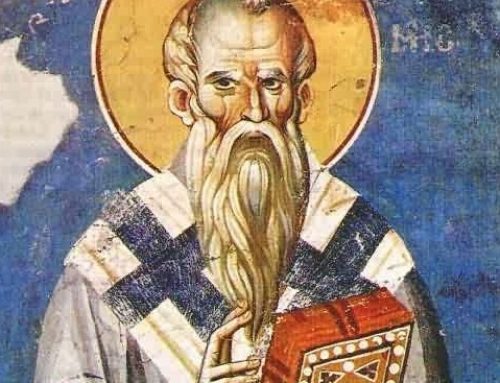
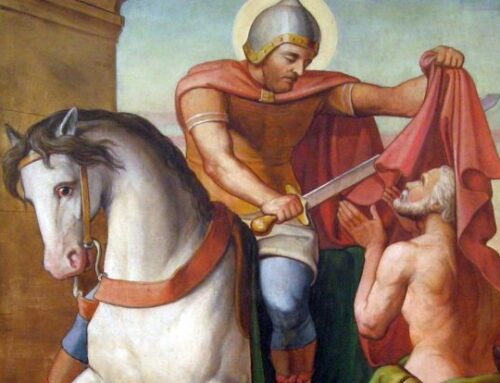
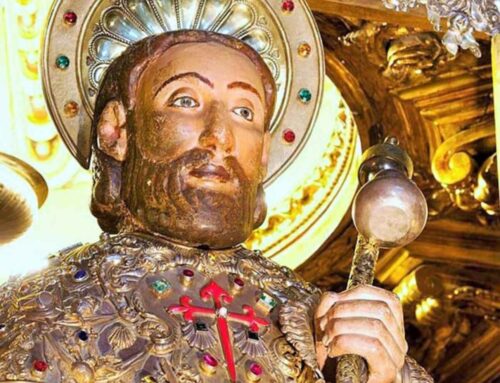
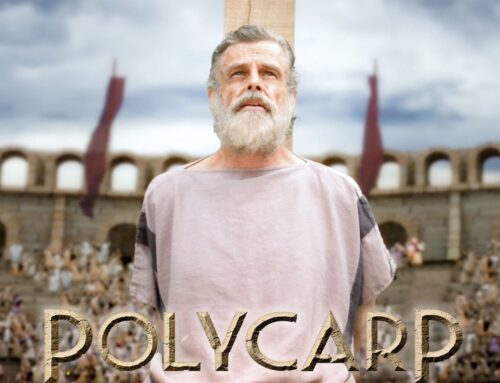
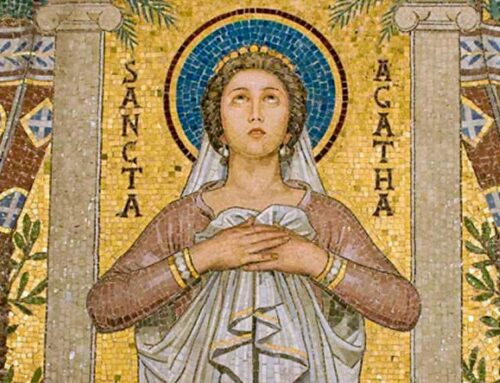
Leave A Comment
You must be logged in to post a comment.